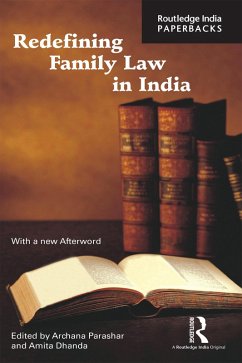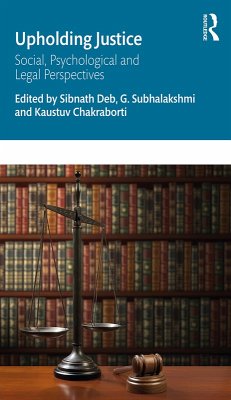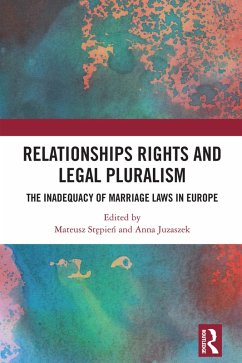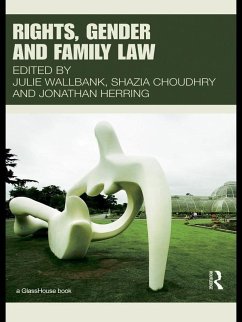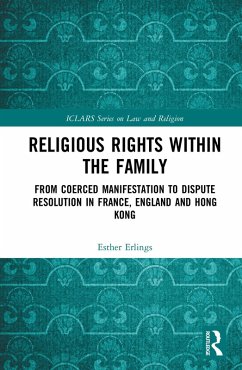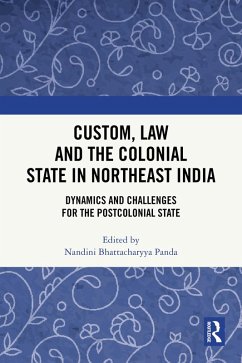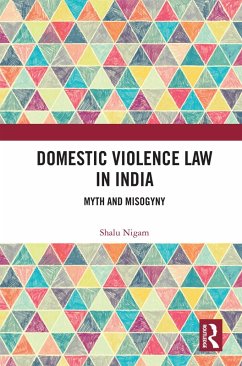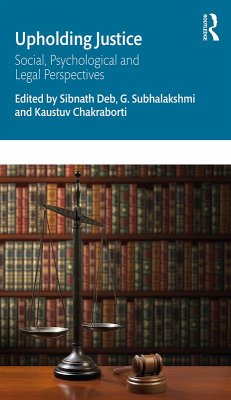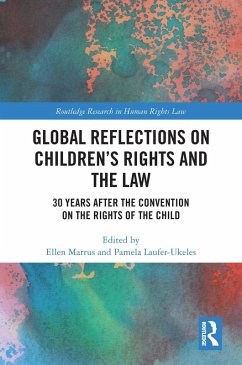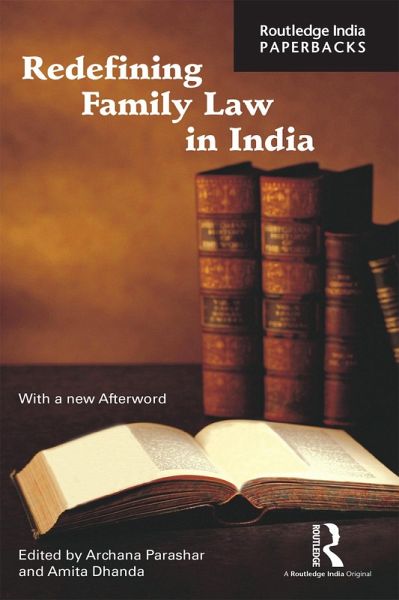
Redefining Family Law in India (eBook, ePUB)
Versandkostenfrei!
Sofort per Download lieferbar
34,95 €
inkl. MwSt.
Weitere Ausgaben:

PAYBACK Punkte
17 °P sammeln!
This volume is a collection of articles by scholars across disciplines to create a discourse of family law independent of Religious Personal Law, whilst striving for fairness and justice to all. It demonstrates the artificiality of the public-private divide and seeks the systematic development of ideas for a fair and just family law in contemporary India.The book does not merely document the pathologies of power within the family but also makes proposals for remedying these inequities. It is not confined to considering what changes need to be inducted into existing family law to make it more j...
This volume is a collection of articles by scholars across disciplines to create a discourse of family law independent of Religious Personal Law, whilst striving for fairness and justice to all. It demonstrates the artificiality of the public-private divide and seeks the systematic development of ideas for a fair and just family law in contemporary India.
The book does not merely document the pathologies of power within the family but also makes proposals for remedying these inequities. It is not confined to considering what changes need to be inducted into existing family law to make it more just, but also strategises on the means and methods of effecting the change. It lifts the familial veil and scrutinises the status, rights and disabilities of some of the subordinated members of the family. The volume is an invitation to redefine family law with the twin tools of reflection and responsibility.
It will interest those in law judges, legislators, law reformers as well as those in women and family studies, policy makers and policy analysts, apart from the general reader.
The book does not merely document the pathologies of power within the family but also makes proposals for remedying these inequities. It is not confined to considering what changes need to be inducted into existing family law to make it more just, but also strategises on the means and methods of effecting the change. It lifts the familial veil and scrutinises the status, rights and disabilities of some of the subordinated members of the family. The volume is an invitation to redefine family law with the twin tools of reflection and responsibility.
It will interest those in law judges, legislators, law reformers as well as those in women and family studies, policy makers and policy analysts, apart from the general reader.
Dieser Download kann aus rechtlichen Gründen nur mit Rechnungsadresse in A, B, BG, CY, CZ, D, DK, EW, E, FIN, F, GR, HR, H, IRL, I, LT, L, LR, M, NL, PL, P, R, S, SLO, SK ausgeliefert werden.




